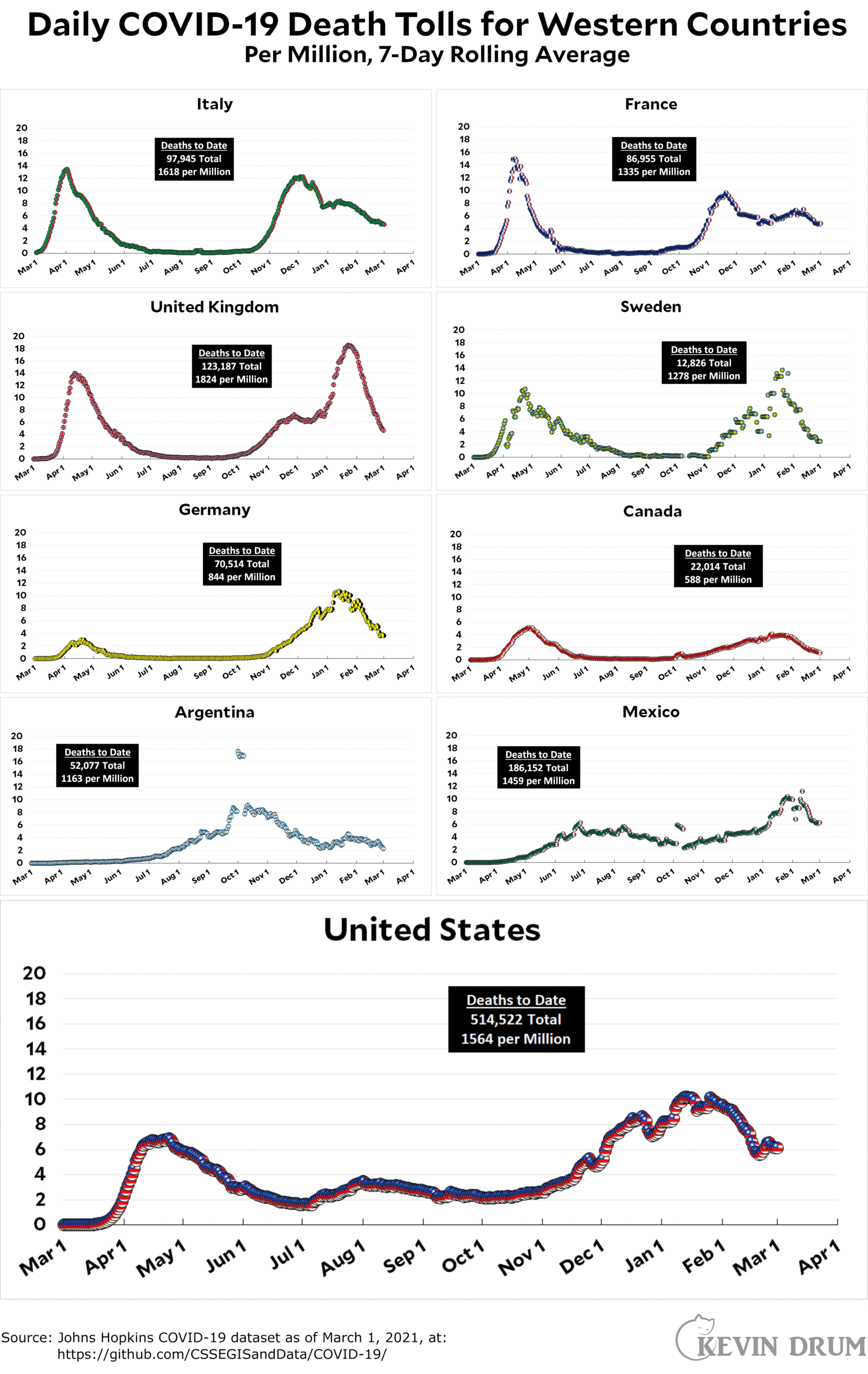Over at the New Republic, Clio Chang tells the story of Richard Ault, a Silicon Valley technologist who fell on hard times and ended up in debt to the tune of $60,000:
“It’s ridiculous to me to think that $1,000 to every family in this country is going to save the country,” Ault said of the government’s sporadic relief checks, especially living in a city with such a high cost of living. “It’s rearranging the deck chairs on the Titanic.”
Ault is one of millions in the United States facing a similar crisis. Household debt, which has been on the rise for the last decade, reached an astronomical $14.56 trillion at the end of last year. As rent and mortgage debt piles up, nearly a third of people in the country are at risk of eviction or foreclosure. While credit card debt, which is now at $820 billion, fell overall, in part due to a decline in spending, some 51 million people still saw it increase during the pandemic. Student loan debt, the second-biggest type of household debt after mortgages, continues to skyrocket, reaching nearly $1.6 trillion.
This is an example of a writer who's just not willing to give up a standard narrative regardless of the facts. First off, here are blue-collar hourly earnings:
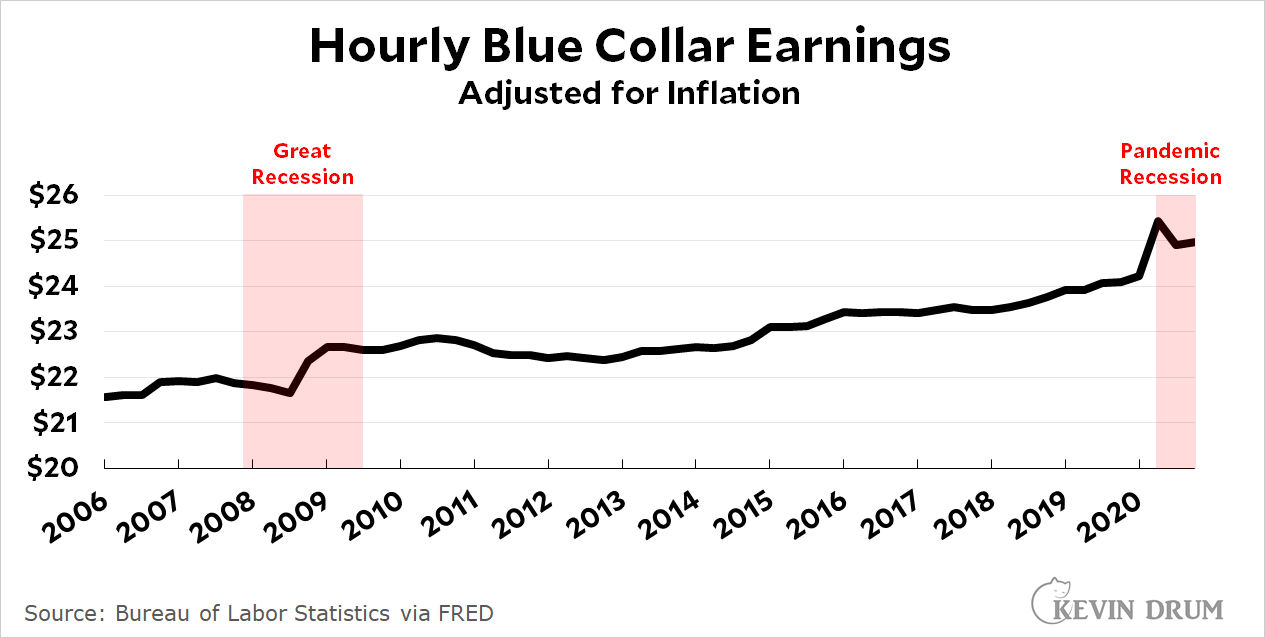
Hourly wages for blue-collar workers have been steadily rising since 2014 and spiked upward at the start of the pandemic recession. Even now, after wages lost a bit of their gain, they are still well above the trendline of the past few years.
Here is household debt:
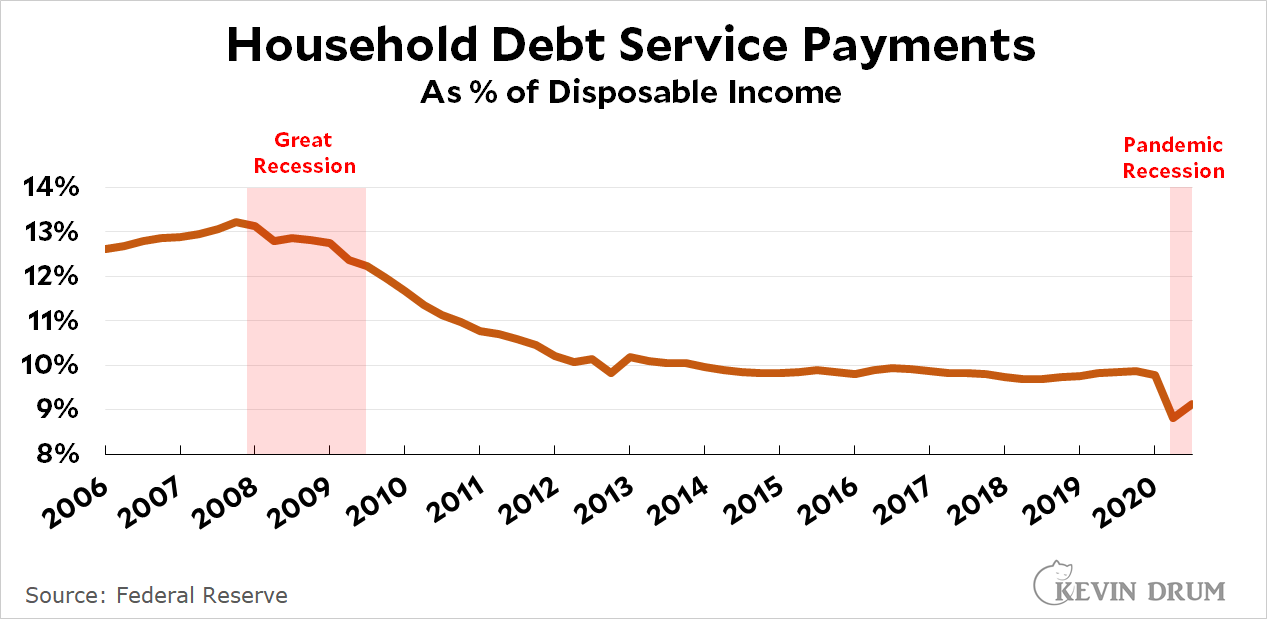
Monthly debt service, which has been at its lowest recorded level for the past eight years, plunged yet again at the beginning of the pandemic recession. It is now well below anything seen since the Reagan era.
Here is the personal saving rate:
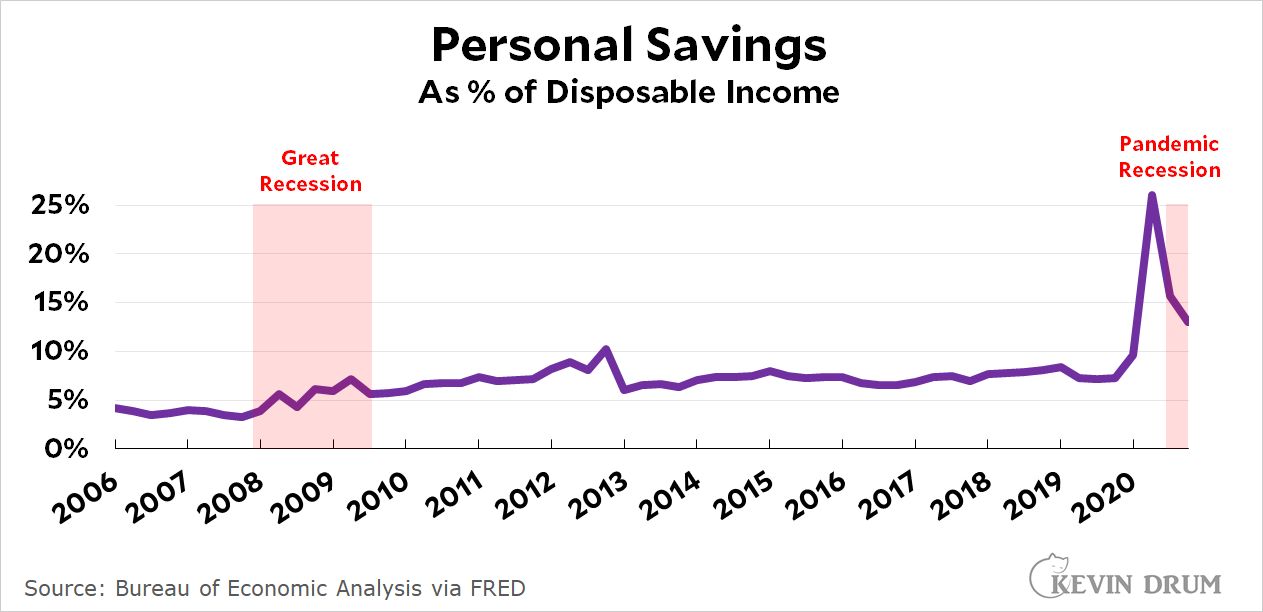
This is higher than anything we've seen since the Reagan era. Those "sporadic relief checks" have not only kept spending from falling off a cliff, they've also kept savings high. And this chart goes only through the third quarter of 2020, so it doesn't account for either the December stimulus bill or the current bill working its way through Congress.
Finally, here's the personal bankruptcy rate:
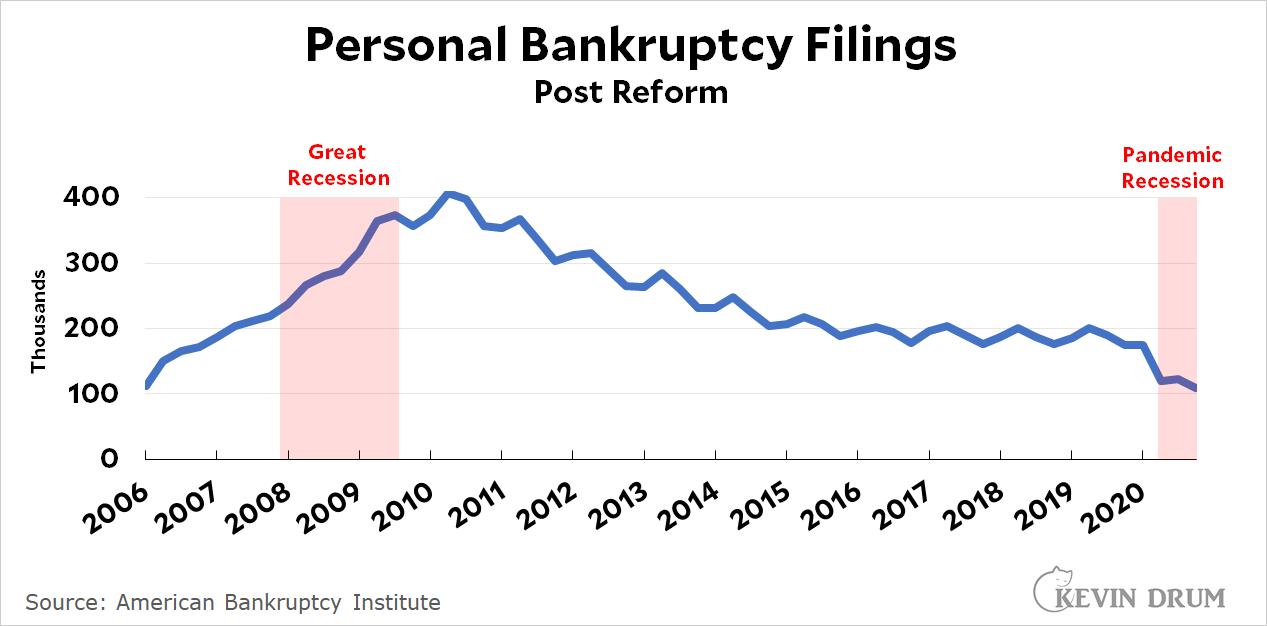
This is post-bankruptcy reform, so the comparison is apples to apples. Bankruptcies fell steadily during the Obama recovery, flattened out around 2016, and then spiked downward after the first stimulus bill passed in March of last year.
In summary: Nearly a year into the pandemic, American households have higher incomes, less debt, more savings, and are filing fewer bankruptcies than they have in decades.
I get that data doesn't tell you everything. Averages can hide a lot of variation, and there are always people in trouble even during the best of times. That said, the data doesn't even remotely back up the economic horror story that liberals seem to be addicted to. If anything, American workers are, in general, better off now than they have been in quite a while—and they'll be better off still after the American Rescue Plan is passed. So let's quit jawing and get it passed.


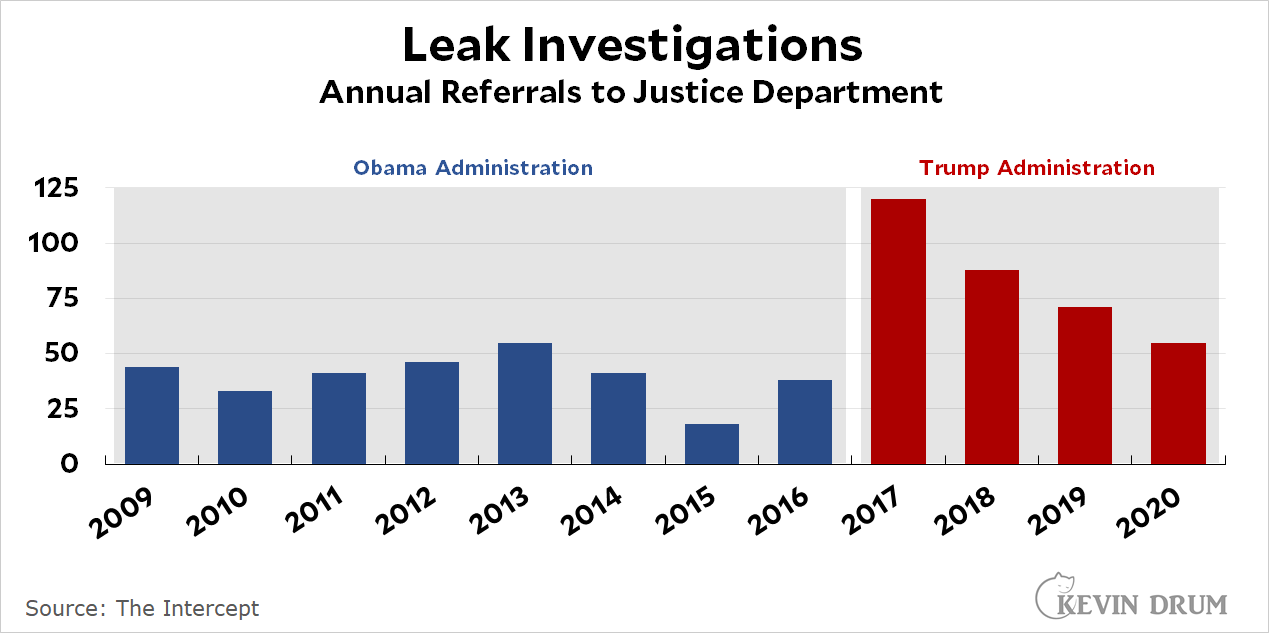
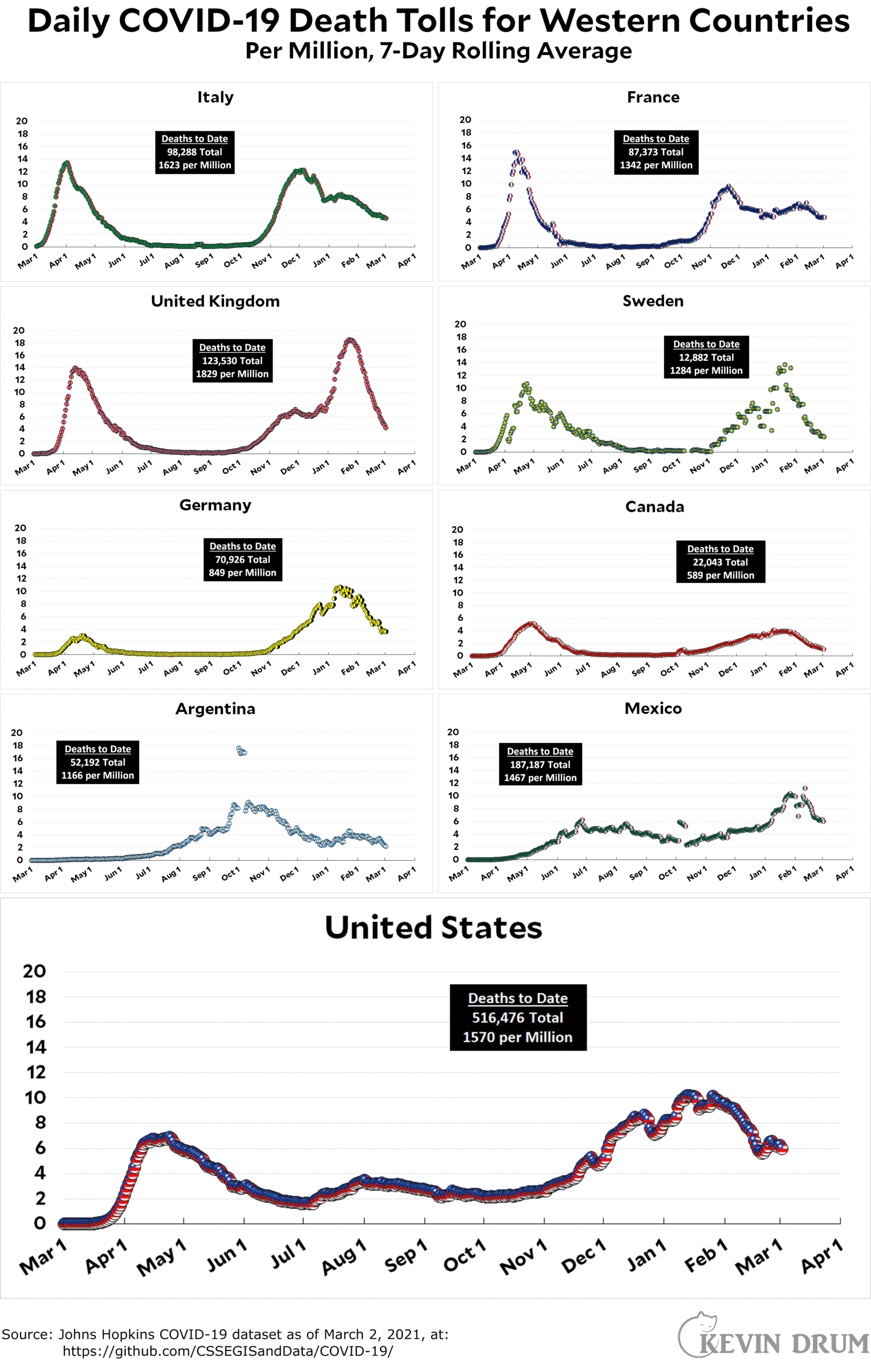

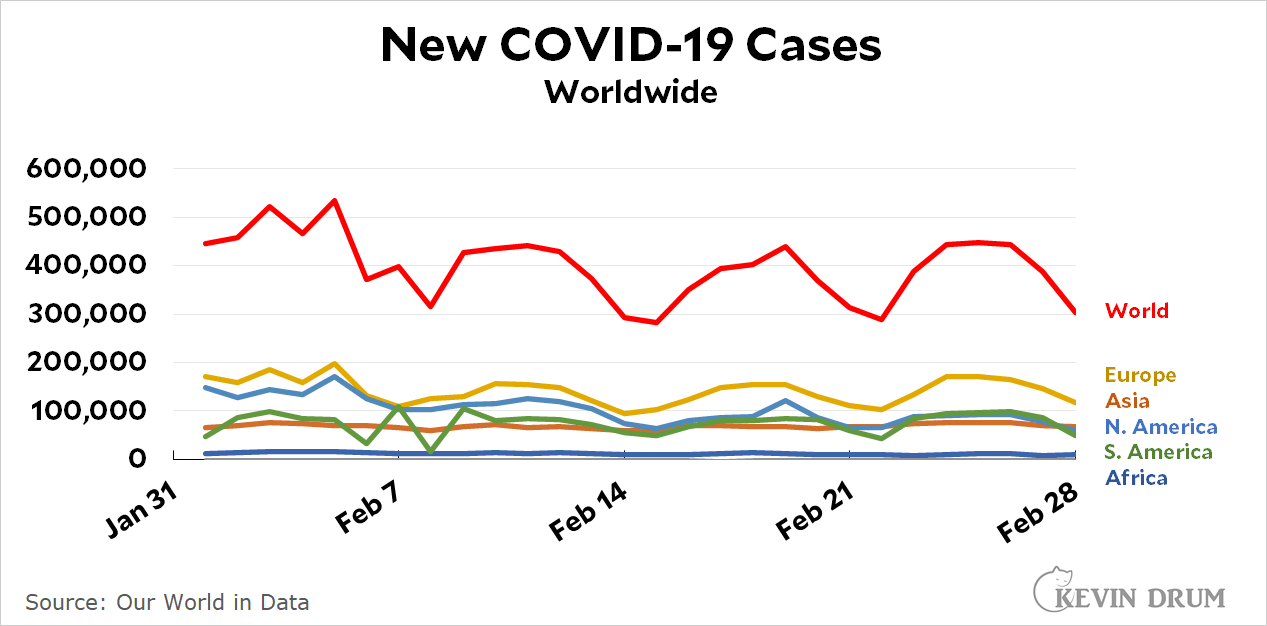
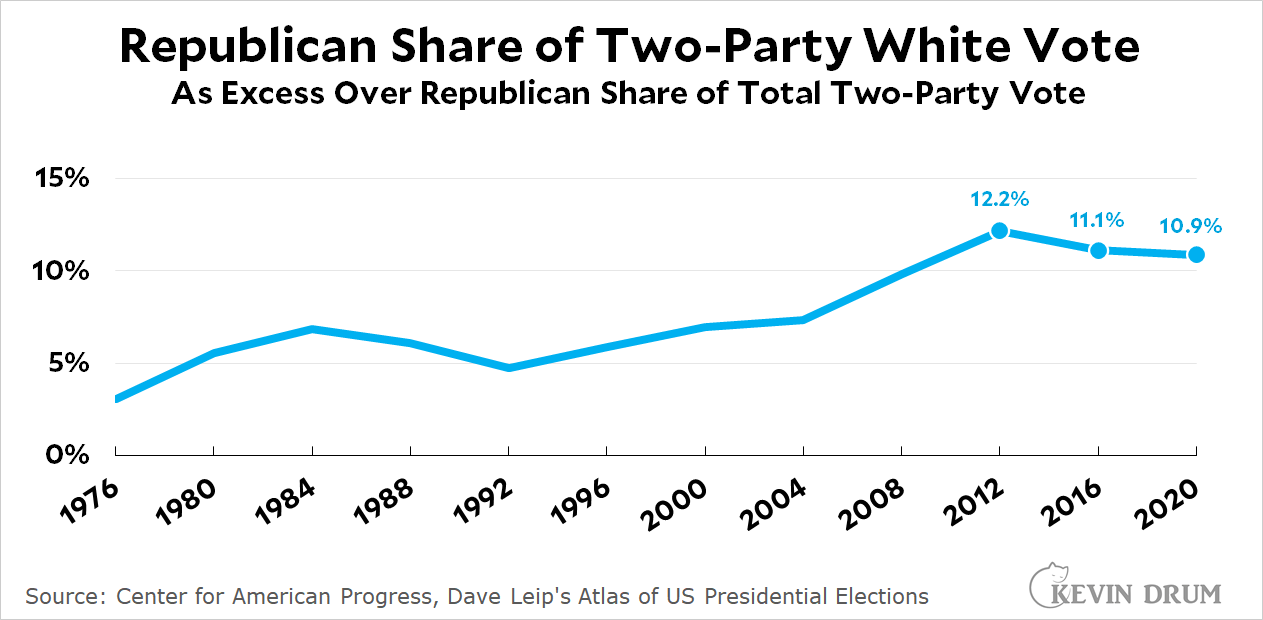
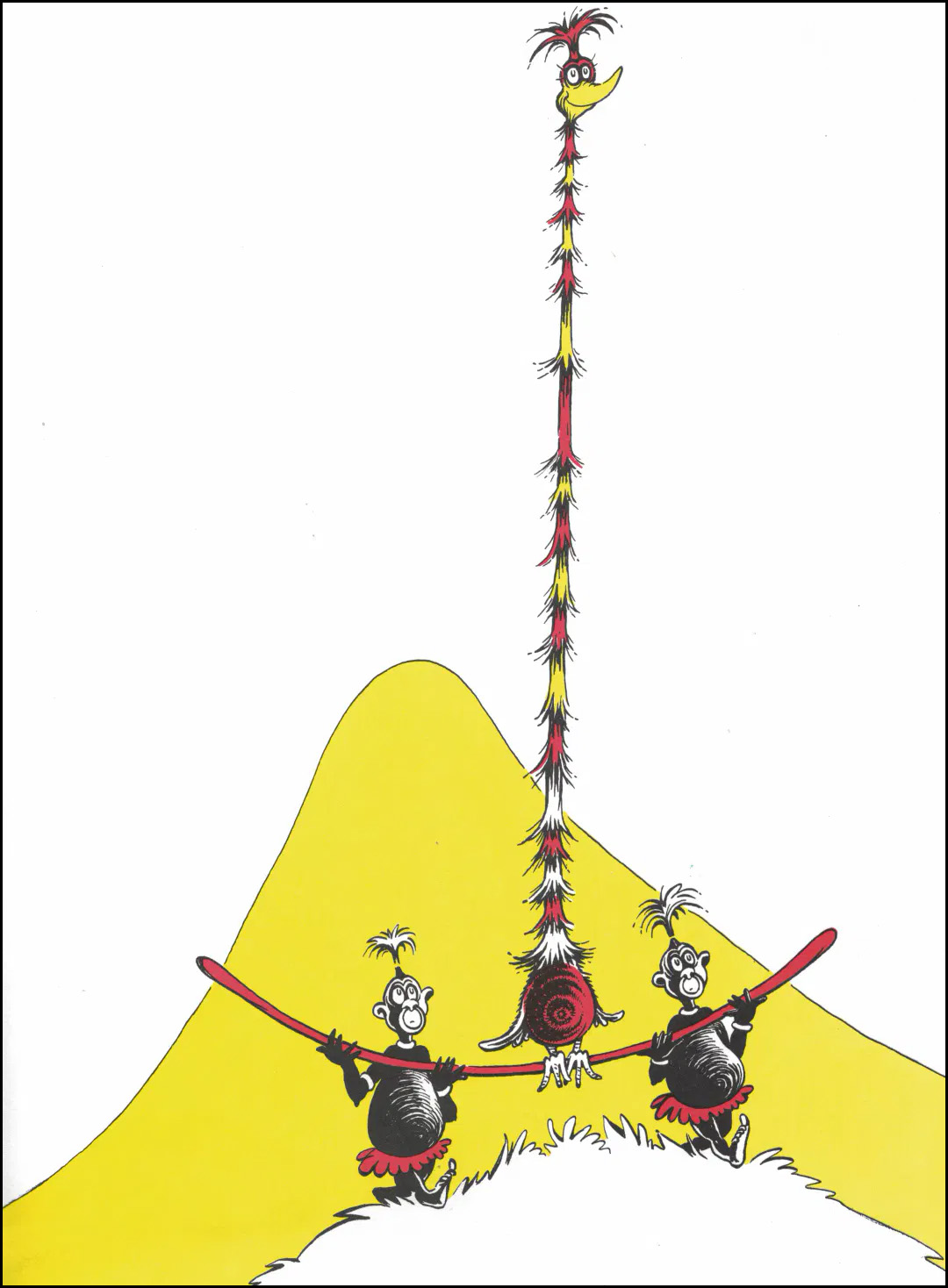 One of the books he was sent was Dr. Seuss's “If I Ran the Zoo,” a book I had as a kid and that I remembered fondly. In it, a young boy imagines what he'd do with the local zoo were he in charge. It's Seuss, so the boy's conjurings are wild, weird creatures whose names rhyme with their points of origin.
One of the books he was sent was Dr. Seuss's “If I Ran the Zoo,” a book I had as a kid and that I remembered fondly. In it, a young boy imagines what he'd do with the local zoo were he in charge. It's Seuss, so the boy's conjurings are wild, weird creatures whose names rhyme with their points of origin.